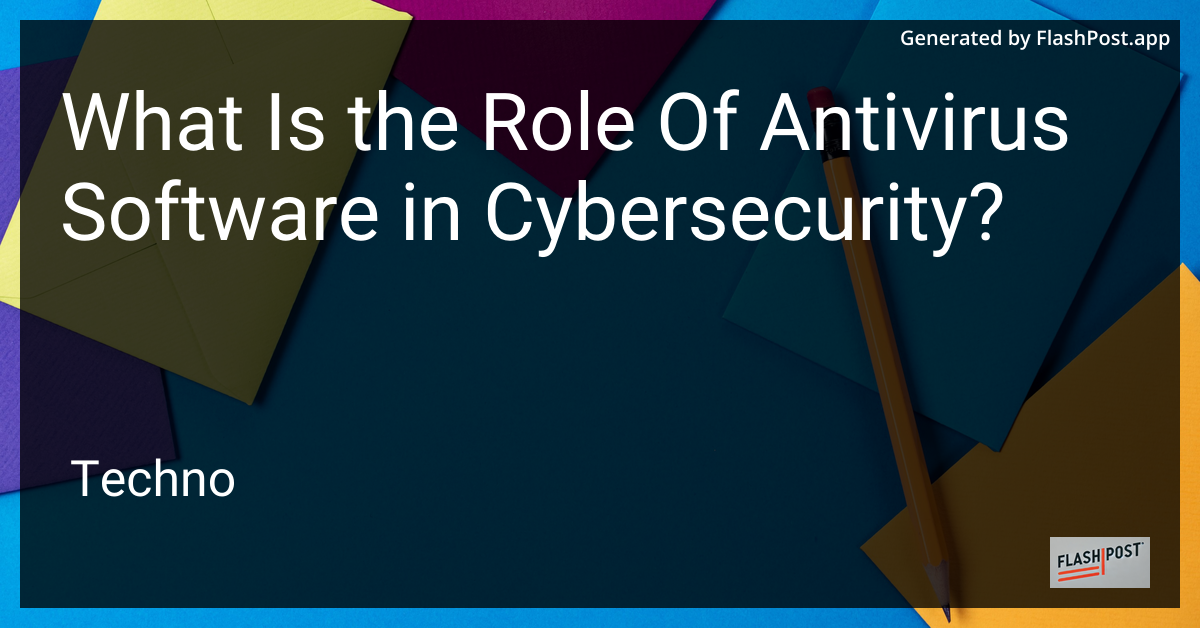
In a world where digital footprints are expanding daily, the importance of cybersecurity cannot be overstated. One crucial component in this landscape is antivirus software. But what role does it play in enhancing cybersecurity, and how can it integrate with other protective measures?
Understanding Antivirus Software
Antivirus software is designed to detect, prevent, and remove malware, including viruses, worms, and ransomware. These malicious programs can infiltrate systems, potentially leading to data breaches and financial losses. By employing a combination of real-time scanning, heuristic analysis, and signature-based detection, antivirus programs create a defensive barrier against these threats.
Core Functions
-
Malware Detection and Removal: At its core, antivirus software identifies and removes unwanted software designed to harm user devices and data.
-
System Monitoring: Antivirus solutions often monitor system behavior continuously, flagging unusual activities and blocking unauthorized access.
-
Regular Updates: To combat evolving threats, antivirus software providers issue regular updates, ensuring their solutions can identify and counter new malware strains.
The Symbiotic Relationship with Other Cybersecurity Measures
While antivirus software is a cornerstone of any cybersecurity strategy, it is most effective when used in conjunction with other methods. Employing a comprehensive approach can significantly enhance protection:
-
Cybersecurity Best Practices: Implementing practices such as maintaining up-to-date software and using secure passwords are fundamental.
-
Cybersecurity Training: Enhancing your knowledge through training can help you identify threats and act proactively.
-
Cybersecurity Analyst Career: For those looking to dive deeper, pursuing a career in cybersecurity not only offers personal advancement but also contributes to the collective digital safety.
The Future of Antivirus in Cybersecurity
As malware becomes more sophisticated, the role of antivirus software must evolve. Integrating artificial intelligence and machine learning can lead to more proactive threat detection and streamlined defenses. Advanced solutions could potentially predict attacks before they occur, adding a new layer of security.
In conclusion, antivirus software remains an essential component of cybersecurity. By understanding its functions and integrating it with other security measures, individuals and organizations can better protect their digital assets. As threats evolve, so too must our strategies, placing a heightened emphasis on comprehensive protection.
Explore More: To enhance your understanding of cybersecurity, consider exploring topics on cybersecurity best practices or delve into training resources for cybersecurity and careers.